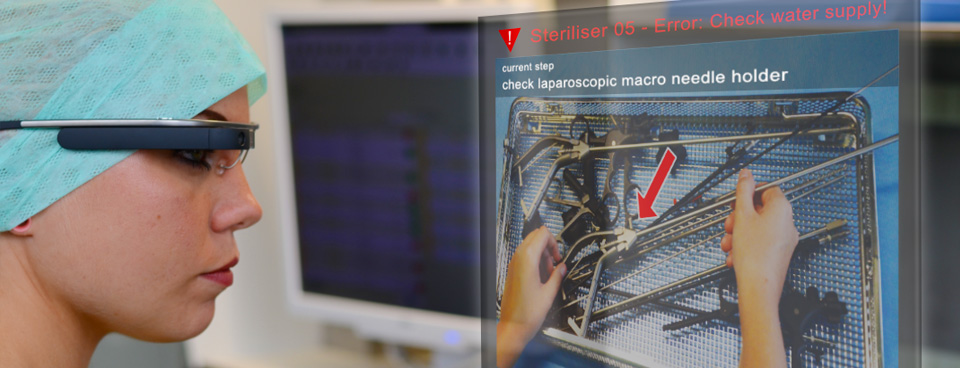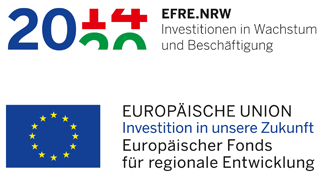Quality assurance in the Sterile Services department – Augmented Reality can help



To achieve best patient care, processes in hospitals must be closely integrated. From coordinating nursing staff to preparing operating rooms, a lot of activities are going on behind the scenes. The same is true for the reprocessing of medical devices, with patient safety being the top priority. Surgical instruments must be cleaned painstakingly, checked for proper functioning and prepared for another use in the operating room. Here accuracy and scrupulous adherence to prescribed procedures are absolute necessities.
In the Sterile Services department, staffers disassemble, clean, reassemble and sterilize surgical instruments, tools and prostheses. That may sound trivial, but these gadgets are getting ever more complex and thus more demanding in terms of the diligence and the know-how required of the staff handling them. Coupled with an increasing workload, these high demands may lead to mistakes in the reprocessing of medical devices. Thus incomplete sets of surgical instruments may be delivered to an operating room or instruments may be insufficiently sterilized. If such deficiencies are detected before a contact with a patient, returning and reprocessing the instruments cause extra costs. If the worst comes to the worst, patients might come in contact with contaminated instruments.
In the near future, there could be welcome assistance for the people in Sterile Services departments. In a project dubbed "Smart Glasses in der Sterilgutversorgung"(Smart glasses in Sterile Services), funded through the "Leitmarkt.NRW" program, we are investigating the potential of using head-mounted displays in Sterile Services departments. These devices can project pictures, videos and texts into the user's field of vision. Some applications of these smart glasses give the user the impression that the information is embedded in the real 3D space in front of her, thus they are called Augmented Reality applications.
In combination with a information and planning system the smart glasses are supposed to support the staff in their activities and to prevent mistakes by displaying warnings and instructions. By providing information on where and when instruments will be needed and on their current whereabouts and use, the system will improve the planning of reprocessing and make sure the surgical instruments required for upcoming operations are available when needed. This will improve the efficiency and reliability of processes in the Sterile Services department. Here, the project also takes a first step towards tracking and tracing medical devices.
Fraunhofer FIT is developing concepts for the users' interaction with the smart glasses that provide optimal support for the staff in Sterile Services departments. Following a user-centric approach, we continuously involve the users to understand their requirements and learn from their feedback. Thus, right from the start the project focuses on delivering a solution that the users deem acceptable and fit for purpose.


IT4process GmbH, based in Herzogenrath, act as coordinator of the project, whose consortium also includes CWS Classen, Tietze&Pozo Medizintechnik GmbH and Uniklinik RWTH Aachen University. The university hospitals of Düsseldorf, Essen, Münster and Cologne as well as WolfartKlinik, Gräfelfing near Munich, are among the associate partners, contributing their expertise and a broad user base for the project results.